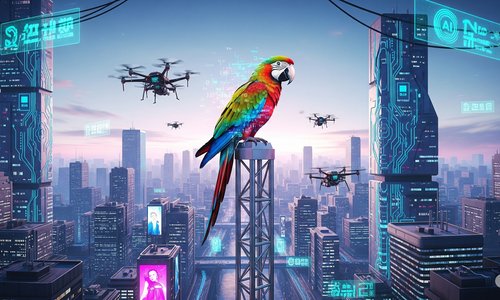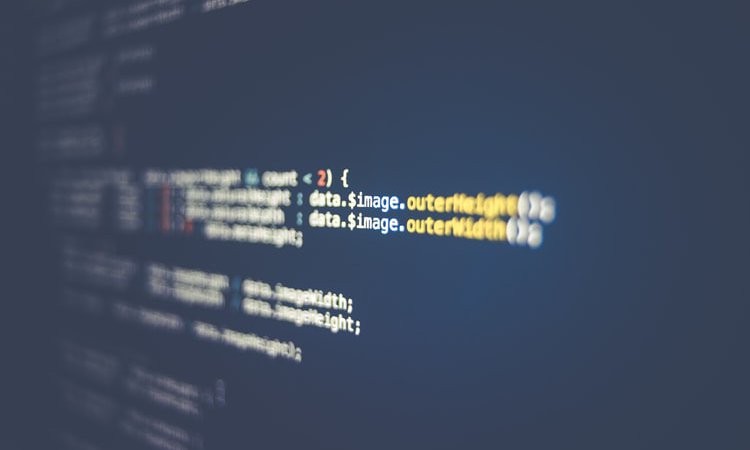
A Promessa e o Perigo da Nova Revolução Digital
A nova corrida tecnológica global levanta uma pergunta urgente: estamos prontos para confiar na inteligência que criamos?

Revolução: grande transformação, mudança sensível de qualquer natureza, seja de modo progressivo, contínuo, seja de maneira repentina. E esta 4ª revolução está baseada em 8 grandes tecnologias: blockchain, internet das coisas, impressão 3D, drones, robótica, realidade virtual , realidade aumentada e inteligência artificial, e certamente já está e vai continuar a promover uma grande transformação no mundo dos negócios e em toda a nossa sociedade.
O primeiro a estudar estas grandes transformações advindas da tecnologia foi o economista austríaco Joseph Schumpeter. Ele chamava este fenômeno de ondas de destruição criativa. Schumpeter chamou de destruição criativa porque as novas tecnologias destroem as vantagens competitivas das empresas líderes até então.
Os maiores conglomerados de carruagens tiveram sua vantagem reduzida ao pó com a chegada dos carros, os detentores das melhores tecnologias em filme fotográfico perderam a sua majestade rapidamente com a chegada da fotografia digital. Gravadoras sentiram o peso do advento da Apple e do seu iPod, e um pouco depois da vinda do Spotify, como as produtoras de conteúdo e de transmissão broadcasting percebem a velocidade que a gigante Netflix vem ganhando adeptos pelo mundo.
Não há como negar que uma nova revolução chegou e está bem diante dos nossos olhos. Eu pessoalmente acredito que dentre todas as tecnologias com caráter disruptivo que temos disponíveis, é a inteligência artificial a grande protagonista desta revolução. Num mundo onde o dado é o novo petróleo, a inteligência artificial são os motores a combustão. Não há pessoa, empresa ou estratégia que não será impactada por ela. Para efeitos de magnitude de impacto, é a nova eletricidade.
Neste sentido é muito importante que os líderes no mundo de negócios entendam minimamente o que essa tecnologia é capaz de fazer. Podemos não nos dar conta, mas a inteligência artificial já está muito presente no nosso dia a dia. Quando a gente desbloqueia o celular utilizando o reconhecimento facial, por exemplo, a gente está usando inteligência artificial (IA). Estamos usando algoritmos de IA quando assistimos a um filme que foi recomendado para nós pela Netflix ou quando chamamos um táxi pelo Uber. Em todos estes e muitos outros casos estamos utilizando algoritmos ligados às diversas tecnologias de inteligência artificial.
Pois é, o que pouca gente sabe é que o que nós chamamos de inteligência artificial são muitas tecnologias combinadas e diferentes: a aprendizagem de máquina (machine learning), o RPA (robotic process automation ou processo automatizado por robôs), o processamento de linguagem natural (NLP - natural language processing), a visão computacional, as redes neurais, a internet das coisas, os chatbots, os gêmeos digitais (digital twin) [Um gêmeo digital é um equivalente virtual de um produto ou serviço físico real].
Há muitas tecnologias que estão ligadas ao mundo de IA e que podem impactar amplamente o mundo dos negócios. A consultoria PwC fez uma pesquisa que menciona que nos próximos 10 anos o impacto que a IA vai trazer na nossa economia está na faixa de 16 trilhões de libras. É muito dinheiro! Essa economia está baseada em quatro grandes fluxos de valor:
1. Produtividade no trabalho:
Quando a gente usa casos de robotic process automation (RPA), por exemplo, é possível automatizar toda a entrada de notas fiscais sem precisar de pessoas para incluir estas informações em um sistema. A IA permite entender as informações que estão na nota fiscal usando algoritmos de OCR (optical character recognition, uma tecnologia ligada à visão computacional, subcampo de IA) e usar o RPA para cadastrar todos os itens automaticamente em seu sistema. Você também já deve ter falado com algum chatbot de atendimento. Um bem famoso é a BIA, do Bradesco, onde você fala com um robô e ele vai interagindo com você e lhe dando respostas.
2. Qualidade
No dia a dia, a gente usa o Waze para encontrar as rotas mais rápidas. O Waze usa algoritmos de busca informada, aprendizagem de máquina e simulação para encontrar o melhor caminho dentro de milhares de combinações possíveis. A IA também é usada para criar produtos melhores. Não sei se você já ouviu falar da NotCo, uma empresa chilena que tem conquistado o mundo. Ela tem feito produtos muito deliciosos com o sabor dos produtos que a gente gosta, mas com componentes mais saudáveis. Ela utiliza aprendizagem de máquina não supervisionada para encontrar quais são os componentes naturais que existem que podem apresentar a mesma sensação, o mesmo gosto e a mesma textura dos componentes tradicionais. Ela desenvolveu uma espécie de “maionese” que é baseada numa pasta de grão de bico e ervas, em vez de ser à base de ovo e óleo. Muito legal, não é?
3. Personalização
Quem já não teve uma experiência fantástica com a Amazon, onde você entra no site para comprar um livro e ela lhe recomenda um monte de livros fantásticos do mesmo segmento e você fica com vontade de comprar todos? A própria Netflix tem um modelo de personalização que entende qual é a qualidade de banda de internet que você tem, a velocidade de banda, e transmite o streaming na versão de baixa resolução que você pode consumir, para você não perder a sequência dos episódios enquanto se desloca de metrô, por exemplo.
4. Redução de tempo
Tem muitas empresas usando algoritmos para aumentar a velocidade de avaliação de crédito. Com isso, empresas conseguem fazer concessão de empréstimos muito rapidamente. Outro exemplo bem interessante, o Grupo Boticário lançou as primeiras fragrâncias desenvolvidas com a ajuda de algoritmo de inteligência artificial, a Egeo “On Me” e a Egeo “On You”. A redução de tempo que eles tiveram no desenvolvimento foi fantástica, na ordem de 3 a 4 vezes.
Então, se você ainda acha que o mundo de inteligência artificial não vai mudar a sua vida, já deve ter percebido que ela já está mudando e felizmente há muitas oportunidades e desafios para aqueles que dominarem esta tecnologia. Estes sim, serão os lideres desta revolução.
Conselheiro fundador da I2AI – Associação Internacional de Inteligência Artificial. Também é sócio-fundador da Engrama, sócio da Startup Egronn, e na consultoria Advance e investidor na startup Agrointeli . Tem mais de 20 anos de experiência em multinacionais como Siemens, Eaton e Voith, com vivência em países e culturas tão diversas como Estados Unidos, Alemanha e China.
Palestrante internacional, professor, pesquisador, autor, empreendedor serial, e amante de tecnologia. É apaixonado pelo os temas de Estratégia, Inteligência Competitiva e Inovação.
É Doutor em Gestão da Inovação e Mestre em Redes Bayesianas (abordagem de IA) pela FEA-USP. É pós-graduado em Administração pela FGV e graduado em Engenharia Mecânica pela Unicamp.

A nova corrida tecnológica global levanta uma pergunta urgente: estamos prontos para confiar na inteligência que criamos?

Por que dominar a IA será a nova alfabetização do século XXI

Conselhos de Administração devem evoluir da supervisão reativa para a antecipação estratégica, frente à crescente complexidade e volatilidade dos ambientes de negócios.

De 14 a 25 de julho, reserve suas manhãs das 08h00 às 09h30 para participar da tradicional Maratona I2AI! Uma jornada intensa com debates e palestras sobre temas essenciais: Ética,